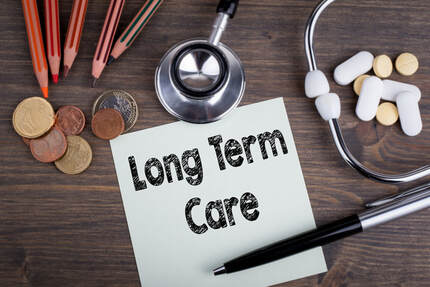 When it comes to retirement planning, it’s easy to feel like either we’re too young to make it a financial priority, or we’ve already missed the boat. However, neither is true. While it’s best to start saving and investing as early as possible, it’s never too late. It’s helpful to meet with a reputable financial advisor to determine your plan of attack for retirement savings. This professional will help ensure you’re on the right path, and an annual check-in meeting is usually all you need for maintenance. To help get you started, below are basic tips for retirement planning that apply to anyone, no matter your stage in life.  Unfortunately, there will always be scam artists out there. These people are looking to make a few bucks, sometimes much more, on trusting and unsuspecting consumers. Scams aren’t always easy to spot, even for savvy consumers, so remember to do your due diligence and if something seems too good to be true, it most likely is. Below are common consumer scams to be aware of to help ensure they don’t happen to you or someone you love.  Being a savvy consumer in your healthcare purchasing decisions provides you with information and incentives to choose healthcare providers based on value. Value is not only about price but also includes quality. You can save money on your healthcare expenses by finding and employing physicians and other providers who believe in the free market. The tips listed below are a few of the many ways to lower your out-of-pocket expenditures and possibly your future premiums.  Tips for College Grads and Everyone Else Everyone has to begin building credit at some point, although it can be a tricky situation. Without a credit card, it’s hard to build credit history. Without credit history, it’s hard to qualify for a credit card. Following college graduation is often when individuals apply for their first credit card but there are many others who don’t start building credit until years after they’re eligible. If you’re under 21 years old, you’ll need either a card co-signer or a verifiable income to prove you can repay your credit card.  Recent data breaches and identity theft reports have heightened consumer aware-ness around the security of payments. Consumers may find themselves asking, “How can I better protect myself and my personal financial information?” EMV cards, also known as chip cards, allow consumers to conduct all of their daily card transactions with added security features to protect their information. And more than likely, EMV cards are coming to a bank near you soon.  April is National Financial Literacy Month, which makes now an ideal time to start planning activities that will support the national focus on financial education. The Pennsylvania Association of Community Bankers encourages parents, teachers and community leaders to shine a spotlight on this important topic in April and throughout the year. By making financial education a family priority, children learn the value of budgeting, saving, investing and using credit wisely. For many, the path to financial success starts in the home, often by watching their parents’ buying decisions for the household. The following tips can provide the foundation necessary to help children make sound financial decisions for the rest of their lives.  It happens to almost all of us at some point, unfortunately—your wallet, checkbook or purse is either lost or stolen. The key to mitigating potential damage that may result, which can range from unauthorized charges to identify theft, is to take immediate action. The maximum time to wait is 24 hours but sooner is better. It’s also important to know the contents of your wallet—including all credit cards, health insurance cards, gift cards, etc. and the contact number provided on the back of each. Listed below are the steps to take if you ever find yourself in this undesirable situation.  In the wake of the financial crisis—described by many as the worst since the Great Depression of 1930s—consumers wonder about the stability of our country’s banking system, specifically the safety of their local hometown bank. Difficult economic times often increase the likelihood there will be attempts by unscrupulous individuals to gain access to your account information and money. How do you know if your bank and your money are safe?  A Harvard study published in the American Journal of Medicine reports that 62 percent of household bankruptcies filed are due to medical bills. What is even more alarming is that 78 percent of those households had health insurance. While the cost of healthcare continues to rise, health insurance plans intended to control costs have been unable to do so. Since the passage of the Affordable Care Act, many Americans have needed to learn about a product that is unfamiliar to them. Below are tips to consider when choosing a health insurance plan.  With nearly 15 percent of the United States population already over the age of 65, few American families are exempt from concerns—now or in the future—about how to care for aging family members. For many, the ability to care for a family member in their own home is not an option, thus necessitating reliance on care from an assisted living facility or nursing home. Reliance on this type of care can prove costly, so it is important that families consider investing in long-term care insurance to help prepare for this eventual need. |
AuthorWrite something about yourself. No need to be fancy, just an overview. Archives
December 2017
Categories
All
|
|
Pennsylvania Association of Community Bankers
800 N. 3rd Street, Suite 304 Harrisburg, PA 17102 Phone: (717) 231-7447 [email protected] | sitemap (C) All Rights Reserved Our Privacy Policy Our Copyright Policy |
"To empower community banks to make positive impact within the communities they serve."
|
